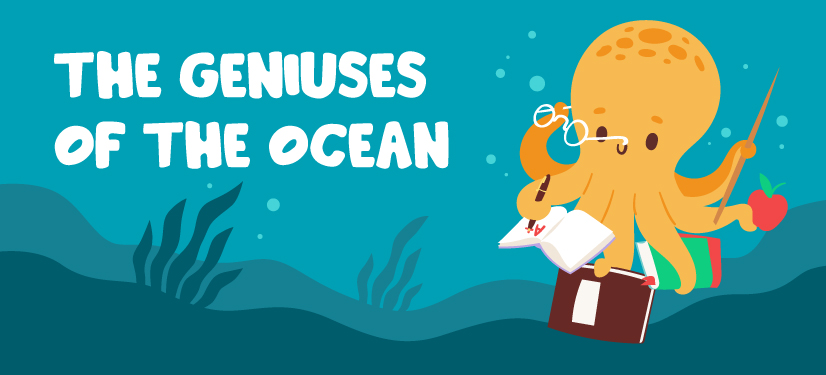
We humans have our opposable thumbs and the capacity for complex thought that makes us truly remarkable. But imagine life as an octopus … camera-like eyes, camouflage tricks worthy of Harry Potter, and not two but eight arms! And those arms happen to be decked with suckers (suction cups) that have an immaculate sense of taste and can trap prey with ease. And not just that, but they can perform tasks even when dismembered.
The octopus is like no other creature on this planet. They have blue blood, three hearts and a doughnut-shaped brain. But these aren’t even the most unusual things about them!
Known for their otherworldly look and remarkable intelligence, octopuses continue to reveal astonishing qualities, abilities and behaviour.
Here are five reasons that makes octopuses the geniuses of the ocean:
More than one brain
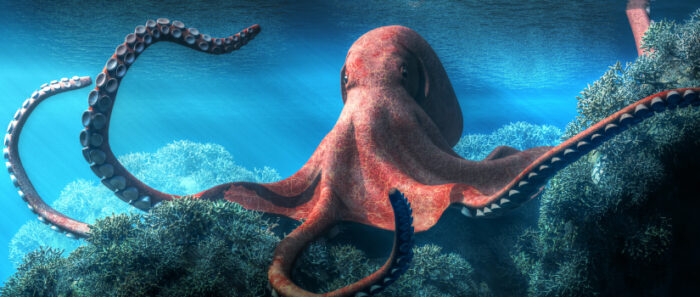
It’s a well-known fact that octopuses have eight arms. But did you know that each arm contains its own ‘mini brain’?
This arrangement enables octopuses to complete tasks with their arms more quickly and effectively.
Moreover, while each arm is capable of acting independently – able to taste, touch and move without direction – the centralised brain is also able to exert top-down control.
Thanks to their nine brains, it seems that octopuses have the benefit of both localised and centralised control over their actions.
Seriously clever
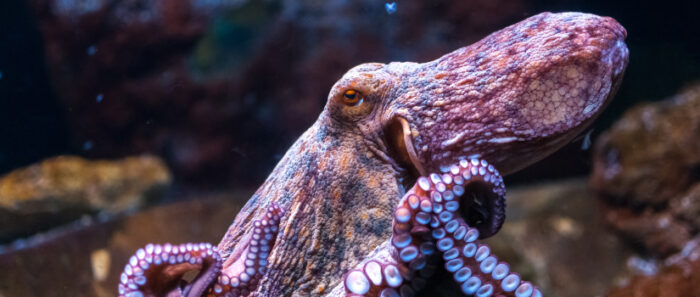
Scientists use the size of an animal’s brain relative to its body as a rough guide to its intelligence, as it gives an indication of how much an animal is ‘investing’ in its brain.
It’s not a perfect measure, as other factors such as the degree of folding in the brain also play a role, but smarter animals tend to have a higher brain-to-body ratio.
An octopus’s brain-to-body ratio is the largest among invertebrates. It’s also larger than that of many vertebrates, not including mammals.
Octopuses have about as many neurons as a dog – the common octopus has around 500 million. About two thirds are located in its arms. The rest are in the doughnut-shaped brain.
Scientists say that octopuses have demonstrated intelligence in a number of ways. In experiments they’ve solved mazes and completed tricky tasks to get food rewards. They’re also adept at getting themselves in and out of containers.
Meanwhile, the sneaky larger Pacific striped octopus uses scare tactics when hunting for its dinner. It creeps up to its prey, such as a shrimp, and taps it on its shoulder. More often than not, the startled shrimp leaps away from the arm that touched it and darts into the clutches of the waiting octopus.
It sure is handy having seven additional arms!
They can use tools
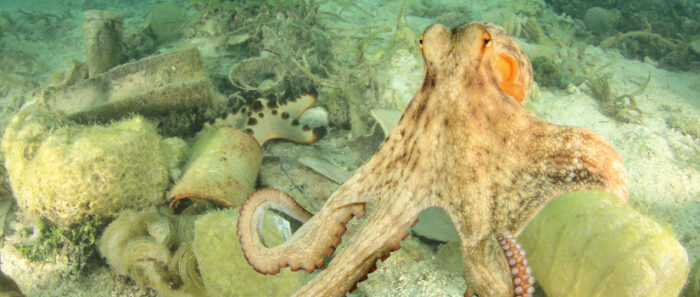
The use of tools is relatively rare in the animal kingdom and is a good indicator of the ability to learn. Among invertebrates, only octopuses and a few species of insects are known to use tools.
In the wild, octopuses have been seen building little dens, and using stones to create a sort of shield to protect the entrance.
They pile up anything they can find – rocks, broken shells, even broken glass and bottle caps.
The most impressive and convincing example of tool use by octopuses came in 2009, when a few veined octopus individuals were observed collecting discarded coconut shells in Indonesia.
After they dug up the shells, the octopuses gave them a good clean with jets of water. They then carried them to a new location and assembled them as a shelter. Travelling with the shells underneath their body resulted in a slow and ungainly ‘stilt walk’ along the seafloor.
This makes the octopuses more vulnerable to predators, but it seems they are willing to accept the short-term risk for future protection.
The scientists who discovered the behaviour argue that this, and the fact the shells are carried around to be used when needed, is conclusive evidence of genuine tool use.
Ability to recognise people (and pick on them!)
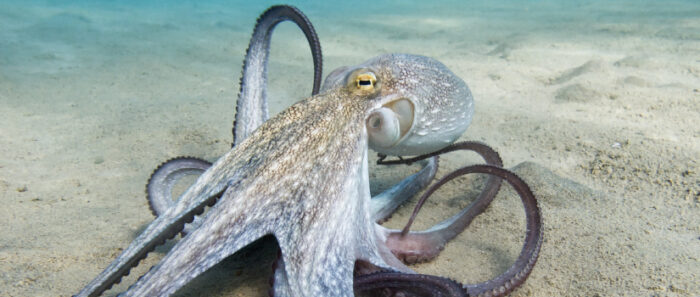
Octopuses have large optic lobes, areas of the brain dedicated to vision, so we know it is important to their lifestyles.
Scientists say that octopuses appear to be able to recognise individuals outside of their own species, including human faces. It’s not unique behaviour – some mammals and crows can do it too – but it is rather unusual.
Scientific American reported a story from the University of Otago in New Zealand where a captive octopus apparently took a dislike to one of the staff. Every time the person passed the tank, the octopus squirted a jet of water at her.
Cunning disguises and escape techniques
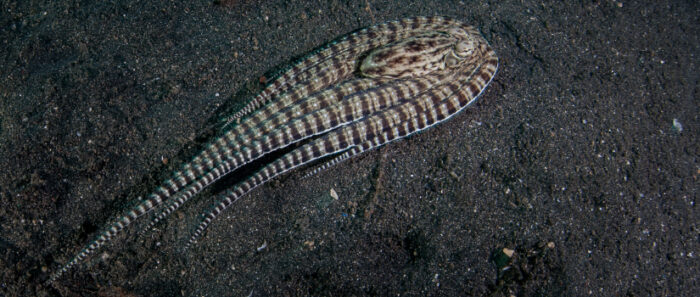
Octopuses are probably the world’s most skilled camouflage artists.
Thousands of specialised cells under their skin, called chromatophores, help them to change colour in an instant. In addition, they have papilli – tiny areas of skin that they can expand or retract to rapidly change the texture of their skin to match their surroundings.
Still, one species has proven to far surpass the rest in its mastery of disguise: the mimic octopus.
Discovered in 1998 in Indonesia, this octopus doesn’t copy surrounding rocks, reefs and seaweed like other octopuses, but instead disguises itself as other animals that predators tend to avoid.
Plenty of other creatures pretend to be other animals, but the mimic octopus is the only one that we know about that can impersonate so many different species. It’s a true shape-shifter.
By contorting its body, arranging its arms and modifying its behaviour, it can seemingly turn into a wide variety of venomous animals. Lionfish, banded sole and sea snakes are among those it impersonates.
The mimic octopus has brilliantly figured that by disguising itself as more threatening animals, it can move more freely and safely travel throughout its underwater home. With an ocean of vibrant disguises at its disposal and no other species capable of such mimicry, the mimic octopus sure are the masters of disguise!
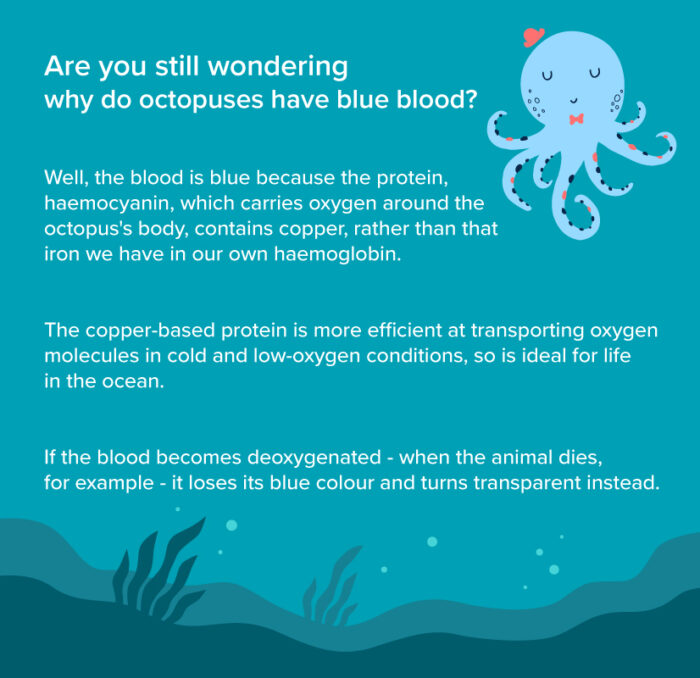
Tell us in the comment section which is your favourite characteristic of octopuses that just blows your mind.
Raza has been writing since 2008, be it fiction, poetry, or articles on science, politics, and history. He believes that words can change the world, and he uses them to inspire and empower people through his writing. When he is not working, he is watching nature documentaries or playing with his cats.
Comments
Sreshta
June 9, 2021
Doughnut shaped brain
SARTHAK JADHAV
June 6, 2021
I loved it
Sagar Vijay Shinde
June 2, 2021
Nice amazing information !
Shruti Jha
May 30, 2021
Cunning disguises and escape techniques just gave me goosebumps!
Rutul Nahar
May 27, 2021
Thats amazing
Mourosi Pal
May 27, 2021
WOW!! I never knew that an octopus has so many brains! Thanks for the information.
Swaraj Balaji Shinde
May 26, 2021
Cunning disguises and escape techniques is the characteristic which I liked
Sunandana Kar
May 24, 2021
Ability to recognise people (and pick on them!)
My favorite part❤️
Rudra Lakhani
May 24, 2021
My favourite characterisic of octopus is they can मजे tools